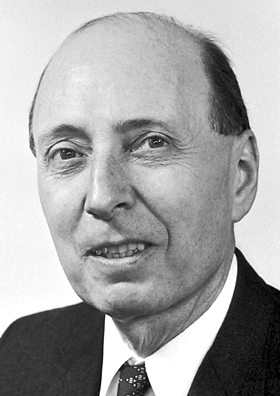De Wikipedia, le encyclopedia libere
| Eugene Wigner |
|---|
 |
| Sexo |
mascule |
|---|
| Nascentia |
1902-11-17 (Budapest) |
|---|
| Decesso |
1995-01-01 (Princeton) |
|---|
| Causa de decesso |
pneumonia[*] |
|---|
| Loco de reposo |
Princeton Cemetery[*] |
|---|
| Ethnicitate |
Judeo |
|---|
| Citatania |
Hungaria, Statos Unite de America |
|---|
| Educate in |
Fasori Gimnázium[*], Technische Universität Berlin[*] |
|---|
| Occupation |
mathematico, physico, professor universitari[*], physico theoretic[*], nuclear physicist[*] |
|---|
| Obras notabile |
The Unreasonable Effectiveness of Mathematics in the Natural Sciences[*], Wigner's theorem[*] |
|---|
| Conjuge |
Amelia Frank[*], Mary Annette Wheeler[*], Eileen Clare-Patton Hamilton[*] |
|---|
| Infantes |
David Wheeler Wigner[*] |
|---|
| Fratres/sorores |
Margit Dirac[*] |
|---|
| Premios |
Premio Nobel pro Physica, Max Planck Medal[*], Enrico Fermi Award[*], Albert Einstein Award[*], National Medal of Science[*], Wigner Medal[*], Josiah Willard Gibbs Lectureship[*], Franklin Medal[*], Richtmyer Memorial Lecture Award[*], Fellow of the American Physical Society[*], Foreign Member of the Royal Society[*], John von Neumann Prize[*], Medal for Merit[*], Atoms for Peace Award[*] |
|---|
| Lingua |
anglese, Lingua hungare |
|---|
| Signatura |
 |
|---|
| Identificatores |
|---|
| ISNI |
0000000108597559 |
|---|
| VIAF |
108474833 |
|---|
| Commons |
Eugene Wigner |
|---|
Eugene Wigner (17 de novembre 1902 in Budapest, Hungaria - 1 de januario 1995 in Princeton, New Jersey, SUA) era un physico e ganiator del Premio Nobel in 1963. Su soror Margit Wigner era le sposa del physico Paul Dirac, qui ganiava le Premio Nobel in 1933.
Wigner, J. Hans D. Jensen, e Maria Goeppert-Mayer recipeva le Premio Nobel pro Physica de 1963 pro lor contributiones al theoria del nucleo atomic.[1]

